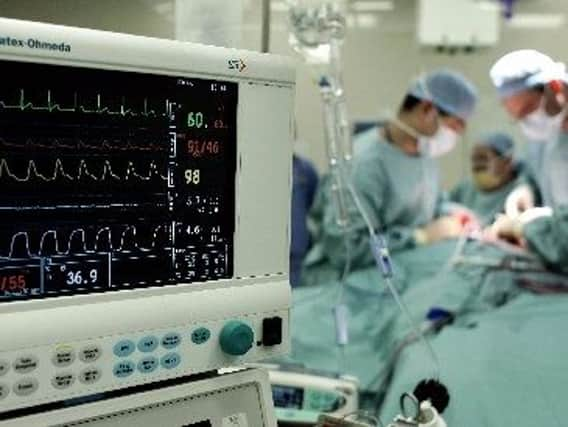Bernard Ingham: The elderly NHS gives me cause to fear for its future


This worries me as one who regards the NHS as the outstanding social development of the 20th century and has little complaint about its care for myself, my late wife or close family.
The cynics tell me this is because “journalist” will figure in both my own and my son’s notes. If this is so – and I have no evidence for it – it would be monstrous; a sort of privileged apartheid because we might write something critical.
Advertisement
Hide AdAdvertisement
Hide AdIf the practice exists, it did not work for two journalist colleagues in the past. One whose son was severely disabled at birth from what a nurse said was “a botched delivery”. The other lost his wife after three failures to diagnose a brain tumour.
I am not prejudiced by this alarming cynicism. Some ailments are difficult to treat and others terminal. There is good and bad in all organisations.
The NHS is plagued by the inevitable bureaucratic response – forms and more forms – to ambulance-chasing lawyers in a litigious society.
Abuse of the “free at the point of delivery” service is long-standing. We also seem to be a nation of hypochondriacs, compounded by regular contradictory advice from academics on what is good or bad for us. Yesterday alone saw mixed messages on statins, the Mediterranean diet and even sleeping too long and wearing high heels.
Advertisement
Hide AdAdvertisement
Hide AdBut the NHS is still a cause for concern. After nearly 70 years, it is an ageing, and overworked, sacred cow that demands ever larger dollops of cash to keep it going in the manner to which it has become accustomed. Demand and resources are veering wildly apart.
When Theresa May has got us out of Europe, her priority must be root and branch NHS reform. I say this because of what I hear from my circle of friends.
A neighbour, a Dunkirk veteran of 99 who can scarcely walk, recently lay undiscovered for two hours after a fall. After a fortnight in hospital five miles away, the warfarin clinic amazingly told him he would have to go back there for tests.
Two ambulance men took one look at the steps at the front and back of his home and declined to move him. When he fell ill soon afterwards three female paramedics wheeled and carried him down his garden and then 75 yards along our garage drive to the waiting ambulance.
Advertisement
Hide AdAdvertisement
Hide AdA former colleague fell steadily weaker with cancer of the oesophagus because he could not eat. The hospital failed to feed him for five days.
It then discharged him even though over the telephone awaiting the ambulance he sounded to me to be fit only for bed. His GP got him re-admitted the next day but he died a few days later.
His widow, also a former colleague, claims the system is dangerously compartmentalised. In trying to follow her long-standing eye specialist from one hospital to another, she asked for her notes to be forwarded. They said they could not do so because their computer systems are incompatible and it would cost her £50 to put them on paper.
But wait for it. On April 12, a consultant told a friend’s father, 82, with a blocked artery and incipient gangrene in a toe, that the problem was critical and needed hospital treatment. More than a month later – on May 25 – he was admitted and over the past two months has had a toe and now the lower leg amputated.
Advertisement
Hide AdAdvertisement
Hide AdI know all this because the friend took me out for the day to Eastbourne, although she was preoccupied with her father 260 miles away in the north of England.
She spent a fortune on telephone calls during our trip to try to secure him treatment, not to mention three weekend drives to see him. And she says that over the whole period he has been seen by no fewer than eight consultants, who seem to change every week.
I accept that the poor chap may have ended up with only one leg regardless of the delays. But as an old man I find his experience alarming and fear the system can only get worse if it is not reformed to bring together in one seamless whole GPs, elderly welfare and hospitals with a remit to care for real, sensitive people and not just patients.
Let my district nurse have the final word. For two years I tried to get the warfarin clinic to monitor my wife and me at the same time to save £47 per home visit. We failed. She said that if her bosses had brains they would be dangerous.